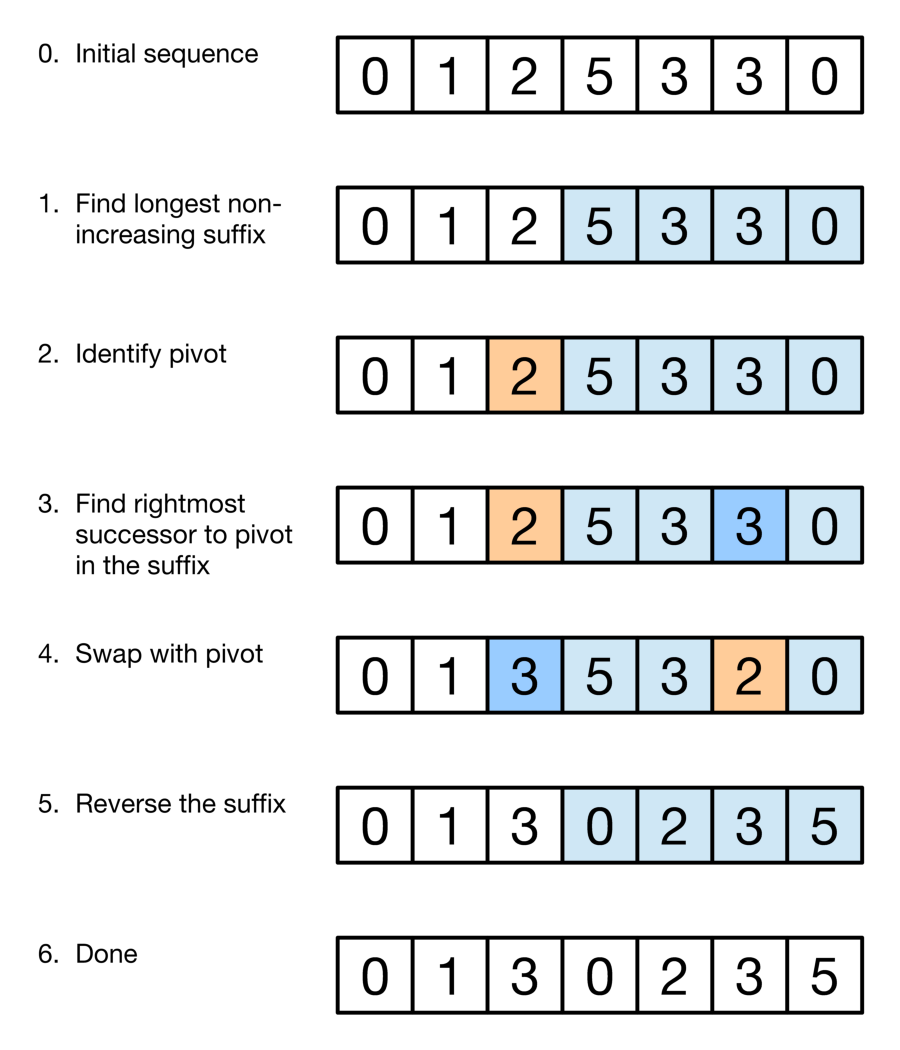public class NextPermutation {
public void nextPermutation(int[] num) {
if (num == null)
throw new NullPointerException("Null array!");
if (num.length == 0)
return;
int index = num.length - 1;
while (index > 0 && num[index - 1] >= num[index]) {
index--;
}
//if the whole array is in descending order, reverse the array and return
if (index == 0) {
reverse(num, 0, num.length - 1);
return;
}
int pivot = --index;
index = num.length - 1;
while (num[index] <= num[pivot])
index--;
swap(num, pivot, index);
reverse(num, pivot + 1, num.length - 1);
}
private void swap(int[] num, int i, int j) {
int tmp = num[i];
num[i] = num[j];
num[j] = tmp;
}
private void reverse(int[] num, int i, int j) {
while (i < j) {
swap(num, i, j);
i++;
j--;
}
}
}
Sunday, December 21, 2014
Next Permutation
This is much easier than the Permutation Sequence. Even though both of them are math problems. I follow the algorithm in this post. And I am stealing the graph from the post (thank you!).

No comments:
Post a Comment